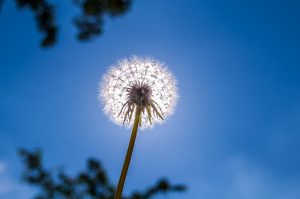Hay fever can cast a serious shadow over the sunnier months for allergy sufferers – but what if the culprit of a particularly bad bout could be planted in your back garden?

Itchy eyes, constant sneezing, wheezing – hay fever really can be uncomfortable when there is no let up from your symptoms.
While there’s no escaping the pollen in the air from nature and open spaces, a few changes in your own garden could help to alleviate your symptoms.
Some plants are worse for causing hay fever than others and it is worth checking if you have any of the major culprits lurking just outside your window.
Trees and hay fever
Unfortunately grass is a major cause of hay fever with its pollen triggering symptoms in a large percentage of sufferers. This generally lasts throughout the summer, peaking in June and July.
It is worth remembering though that different plants can have different effects – and at different times of the year. To find out what triggers your hay fever monitor what time of year it occurs and when it is worst.
Tree pollen is a problem for hay fever sufferers earlier in the year – usually from May to March but can last up until June.
Some trees in particular can prove to be highly problematic for hay fever sufferers, with the most notable example being the birch tree along with alder, ash, oak and horse chestnut.
The high allergenic quality of the trees is down to the fact that they are wind-pollinated, meaning their hay fever-inducing pollen spends more time airborne.
Hay fever sufferers may find trees such as blossom-bearing fruit trees better for their gardens while female trees are also less problematic.
Planting to help hay fever
This approach should extend to the plants in your garden too, with wind-pollinated varieties being worse for hay fever as opposed to insect-pollinated plants.
Plants that have been linked to hay fever include lilies, jasmine and sunflowers.
Plants that are said to be better for allergy sufferers include:
- Pansies
- Hydrangea
- Roses
- Peonies
Having a flourishing garden, protecting nature and managing hay fever is a delicate balancing act but good choices can make a difference.
For help managing garden trees contact Garden Busters.








